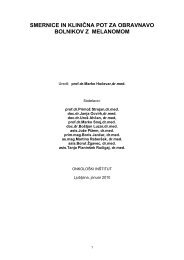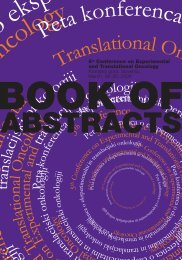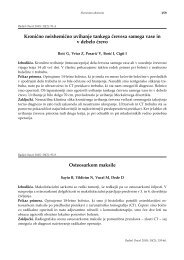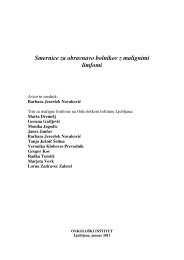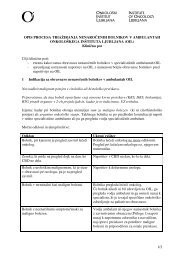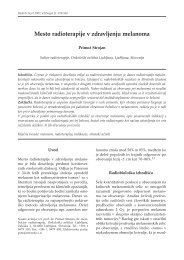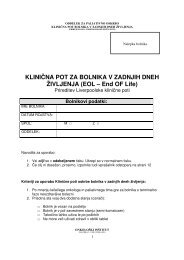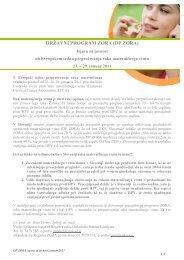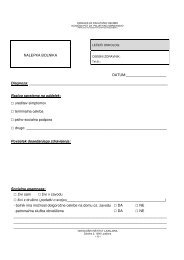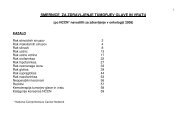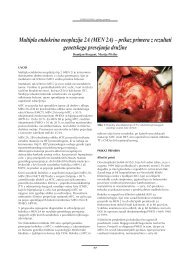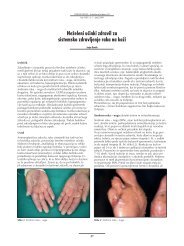Create successful ePaper yourself
Turn your PDF publications into a flip-book with our unique Google optimized e-Paper software.
Growth factors as paracrine und autocrine mediators<br />
of tumor progression and stroma modulation<br />
Wiltrud Lederle, Silvia Vosseler, Claudia Gutschalk, Norbert E. Fusenig,<br />
Margareta M. Mueller<br />
Group Tumor and Microenvironment, German Cancer Research Center (DKFZ), INF 280,<br />
D-69120 Heidelberg<br />
The altered expression of growth factors and receptors has a pivotal role in the<br />
interaction between the tumor and its stroma. Growth factors induce the generation<br />
of a tumor-permissive stromal surrounding that facilitates tumor growth and<br />
progression. In the HaCaT model for SCCs of the skin we could demonstrate that<br />
the kinetic and extend of stromal activation and angiogenesis critically contributes<br />
to the establishment of a benign or malignant tumor phenotype. We identified the<br />
expression of a number of growth factors to be associated with tumor progression<br />
and could verify the functional contribution of several factors to tumor progression<br />
in vivo.<br />
Transfection of non-tumorigenic HaCaT cells with VEGF induced a persistent<br />
stromal ctivation and angiogenesis and as a consequence progression to a low<br />
grade malignant tumor phenotype with very strong angiogenesis and invasive<br />
growth into the surrounding host stroma. Similarly, induction of a persistent<br />
recruitment of inflammatory cells to the tumor microenvironment that is followed by<br />
persistent angiogenesis and can be induced by the expression of IL-6 or G-CSF and<br />
GM-CSF in previously benign tumor cells promotes tumor progression to a<br />
malignant phenotype. Interestingly this growth factor induced tumor progression<br />
is associated with the expression of a specific set of MMPs in tumor and stromal<br />
16l3<br />
cells. Reciprocally blocking stromal activation and angiogenesis with a neutralizing<br />
antibody to VEGFR-2 inhibits malignant tumor growth via a phenotypic reversion<br />
to a pre malignant tumor phenotype. This is associated with an abrogation of the<br />
persistent angiogenesis, a down regulation of stromal MMPs, a maturation of blood<br />
vessels and a normalization of the tumor stroma. Thus our system demonstrates<br />
the importance of the stromal activation and angiogenesis in determining the<br />
benign or malignant tumor phenotype and provides promising new targets for the<br />
control of tumor growth and progression through the normalization of the tumor<br />
microenvironment.



